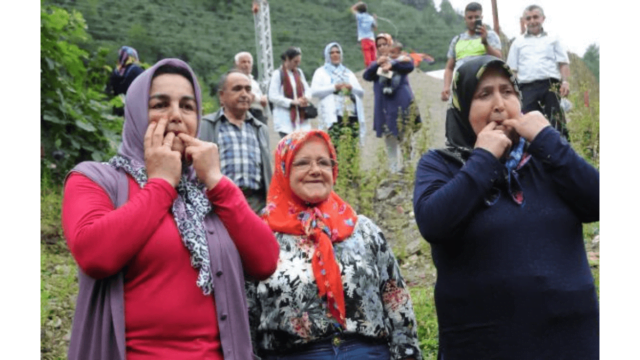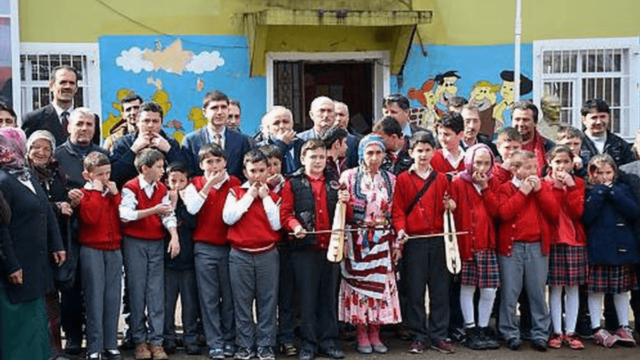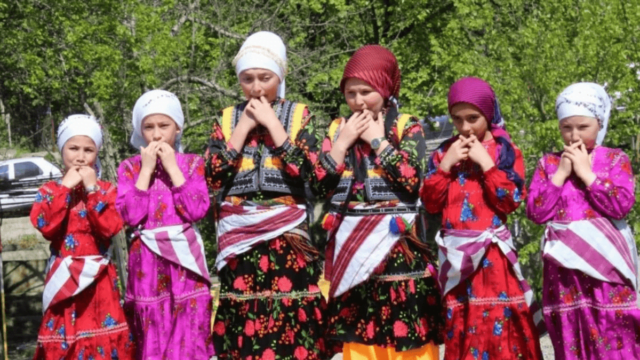Fascinating cultures and linguistic differences have existed among us since forever. Each country has its own unique cultural heritage to offer in this colossal world.
The whistling village of Meghalaya is one unique example of this linguistic difference in India. Extending beyond our borders, a village in Turkey also has a unique language called the “bird language”.
If you haven’t heard of this before, let’s take a ride through its history.
“Kuş Dili”- The Bird Language
In a village named Kuşköy (which translates as “bird village”), on the Black Sea coast of Turkey, people express words using the bird language, also known as “Kuş Dili”. The language dates back to 400 years, but the origin is still uncertain.
In the hilly areas of Kuşköy, where homes are dotted high on the mountainside, bird language was once an important form of communication.
Bird language is a series of piercing whistles that can be heard even from a kilometre. This language is a combination of high pitched whistles and melodies. The harmony of whistles and melodies when heard is no less than a bird song.
As this language has no specific grammar, there is no practical limit to its vocabulary. However, in practice, Turkish people use this language for simple commands and requests, such as “come for tea”, “come and work with me tomorrow”, and is also used for funerals, births, and wedding announcements.
In 2017, the United Nations Educational, Scientific, and Cultural Organization (UNESCO) included bird language on its list of Intangible Cultural Heritage.
Also Read: India’s Whistling Village: Where People Communicate Through Whistling
Why The Language Is At A Risk Of Dying Out
The language that was once spread across the Black Sea regions of Trabzon, Rize, Ordu, Artvin, and Bayburt, is now only used in Kuşköy village.
The rough terrain and hilly regions of the village were seen as the main cause that kept the bird language alive. But with the era of electricity and roads, the need for this unique language is slowly vanishing.
The development of smartphones is also a major threat to this language. Adding to the catalogue of threats, migration of people to urban areas in search of better opportunities is also a reason that led the language to the verge of extinction.
As per the report by Hurriyet, People of Kuşköy are working to keep the language alive by teaching and organizing festivals. From the year 2014, the district authorities began teaching the language at primary school levels.
According to The Atlantic, the village has been organizing an annual festival to celebrate and promote their language since 1997. The sole purpose of these festivals is to make their language an economic source for the region.
With social and technological advancement, people are disconnecting from their cultural roots. Bird language is one of its kind and needs to be preserved in this rapidly changing technological world.
Image credits: Google Images
Source: BBC News, The New York Times, The Atlantic + more
Find the blogger: @mitali_pk
This post is tagged under: Turkey, Bird Language, unique language, bird language of Turkish people, Turkish, Kuşköy, Kuş Dili, whistling language, unique culture, language of turkey, UNESCO, 2017 list of Intangible Cultural Heritage, Black Sea coast of Turkey, language festival, unique languages of the world
Other Recommendations:
Japanese Smart Face Masks Help You Speak In Eight Different Languages








































